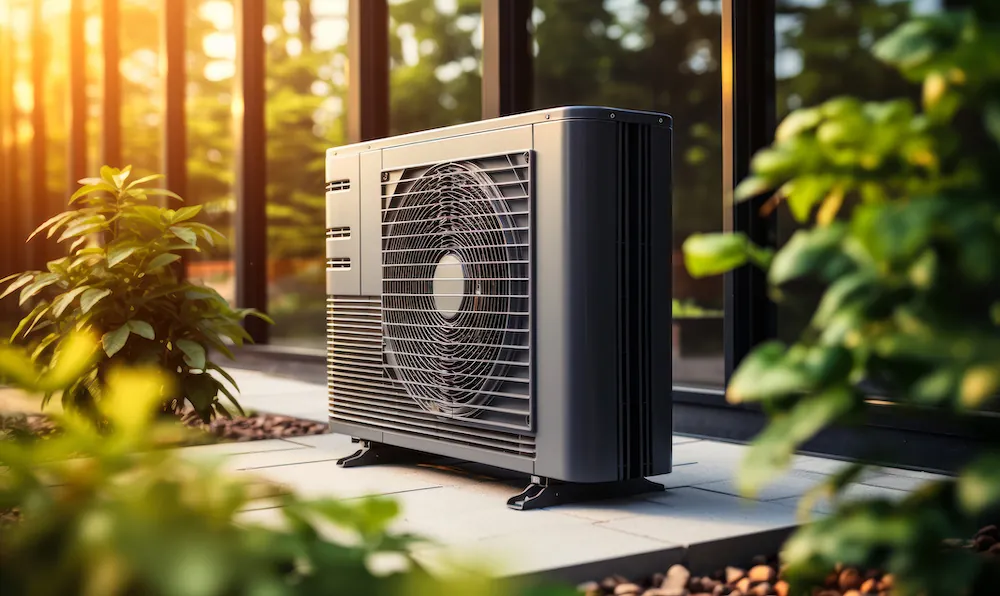
There comes a time in the life of every HVAC system when its owner asks a very important question: to repair or replace?
Your HVAC system is integral to the comfort of your home, as it controls and regulates temperature, humidity, and air quality. You will quickly notice your comfort diminishing when it fails to do its job.
Typically, your next step is to call your HVAC contractor to get the system diagnosed and repaired. However, as time passes, you may find yourself paying for repairs more frequently. How do you know when it is time to replace your HVAC system?
Replacing your HVAC system is a large investment, so you want to be sure to do it at the right time. There are four major factors to consider in your decision: lifespan, condition, efficiency, and cost. In this post, we’ll discuss each factor in depth so that you can assess your home’s needs and make confident decisions about your HVAC system.
IS IT TIME TO REPLACE YOUR HVAC SYSTEM?
Before answering this question, you should consider four major factors about your HVAC system. These will help you determine the costs and benefits of replacing your system versus repairing it. Let’s dive in!
- How long is your HVAC system’s lifespan?
The average lifespan of a well-maintained residential HVAC unit is 15-20 years. However, many factors can affect this, such as the type of unit, frequency of use, amount of maintenance, and even the surrounding climate. For example, coastal areas tend to have more salty air, which can decrease your system’s lifespan by as much as 8 years.
If you have an older unit already experiencing more frequent problems, you will probably have to replace it in the next few years, regardless of how well it is repaired. On the other hand, if you expect your system to last at least five more years, replacing it may be premature.
Your local HVAC contractor can estimate the remaining lifespan of your HVAC system by determining its age, condition, and functionality.
- What condition is your HVAC system in?
The condition of your HVAC system is a major contributor to the amount and type of repairs you may encounter. Regular maintenance can help your system perform more efficiently and lower the risk of significant issues. When issues do happen, they will likely be minor, and repair will be the more manageable and less expensive choice.
On the contrary, a lack of proper upkeep over time can contribute to more frequent and costly repairs. As your system breaks down and malfunctions, your comfort levels will worsen, and you will have no choice but to replace the system.
- How energy-efficient is your HVAC system?
Energy efficiency is extremely important for your HVAC system, which is why it improves every year as new heating and cooling technology is developed.
Higher energy efficiency can help your unit reach your desired temperature quicker, providing more consistent comfort. The more energy-efficient your system, the less you will pay in monthly bills, and the less impact you will have on the environment.
If your HVAC system is inefficient compared to newer models, you may want to consider replacing it, since the long-term benefits and lower energy costs can make your investment worth it.
- What will it cost to replace your HVAC system?
Speaking of investment, it is no secret that a new HVAC system can be expensive. However, you can often use financing, discounts, and rebates to reduce costs. Plus, the benefits of upgrading may include additional long-term cost savings.
If you are considering replacing your system, you should compare the initial investment cost to the potential savings and overall value. For example, if your repair costs are starting to add up, you may find out that replacing your system would be less expensive.
Likewise, if poor efficiency contributes to rising energy bills, upgrading to a more efficient model could save 20-40% in cooling costs (Energy.gov). Lastly, if you plan to sell your house soon, a new HVAC system could add to the market value of your home and help you recoup your entire investment.
FINAL THOUGHTS
If you decide to replace your HVAC system, be sure to do your research before purchasing a new one. For example, if upgrading your furnace, follow these 3 tips for choosing the right unit.
Next, if you purchase a new HVAC system, you should ensure it receives proper care and maintenance. Doing so will allow it to perform efficiently, prevent costly repairs, and extend its lifespan. An annual maintenance contract is the best way to upkeep your HVAC system, and it comes with several cost benefits of its own.
Remember, the best way to evaluate all the factors discussed in this post is to contact your local HVAC contractor for their expertise. Eagle Air Conditioning is a trusted and recognized leader in California’s Tri-Valley and Central Valley. We carry the top HVAC products and provide installation, repair, and maintenance for all makes and models.
Contact our local HVAC experts for a complete evaluation of your system and determine if it effectively meets your comfort needs. We would be happy to help you choose between repair and replacement.





